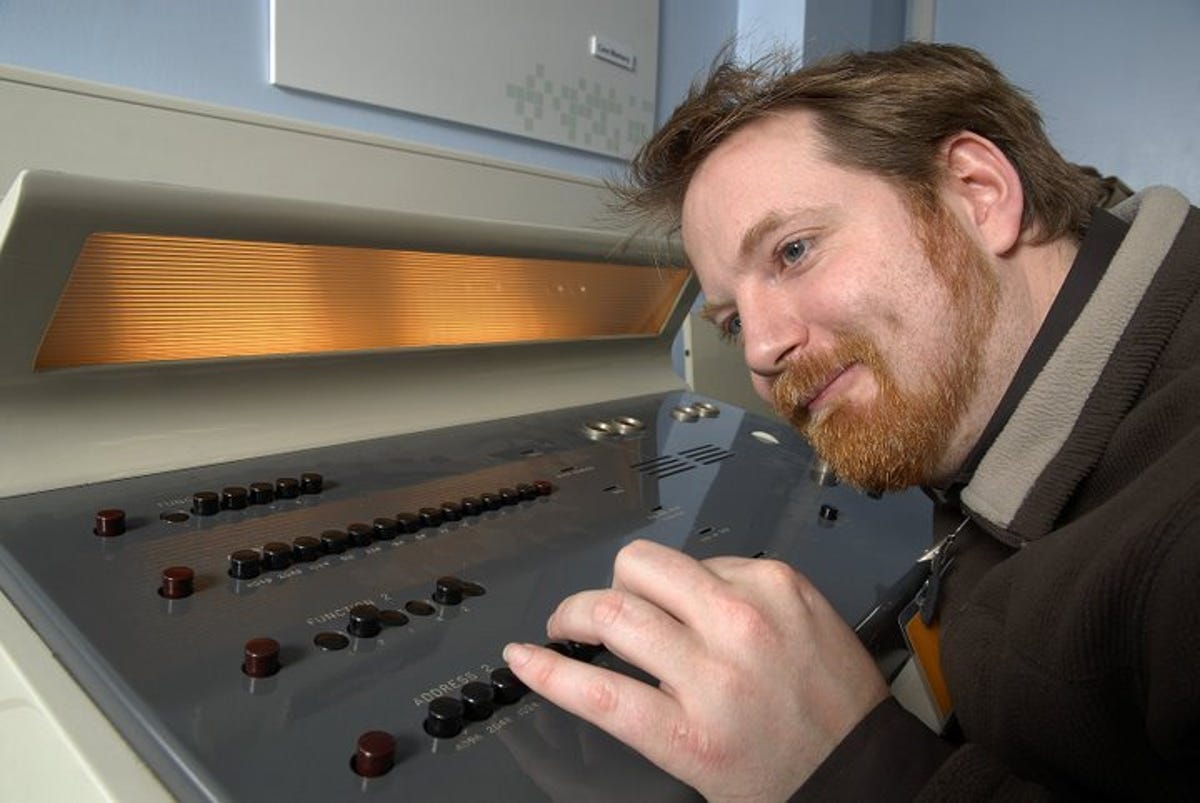Photos: Colossus finds its voice
Musician Matthew Applegate plans to fuse the simple sounds produced by early computer hardware into tonal tunes in two concerts at historic Bletchley Park.

The bleeps and beeps of the world's earliest computers are being crafted into electronic riffs for a 21st century music concert.
The codebreaking computer used in World War II, the Colossus Mark II, and vintage machines--ranging from the 1960s' Elliott 803 to the 1980s' BBC Micro--will sing again as part of the Obsolete project, which is using early computers to make electronic music.
Next week, musician Matthew Applegate, aka Pixelh8, will fuse the simple sounds produced by early computer hardware into tonal tunes in two concerts at Bletchley Park in Buckinghamshire, England, home of the World War II code breakers.
Applegate, who has worked with former Blur frontman Damon Albarn, hopes Obsolete will put the spotlight on the U.K.'s computing heritage and the tech treasures within The National Museum of Computing (TNMOC) at Bletchley.
Here Applegate shows off the Elliott 803 and its myriad buttons.
Applegate's music is classed as being within the chiptune music genre, which uses sounds directly synthesized by the computer hardware rather than the samples used in most modern electronic music.
Kevin Murrell, a director and trustee of TNMOC, said even the earliest 1940s computers could produce sounds.
"Very quickly astute operators started to alter tones and make tunes, and manufacturers discovered that this was a way of making their machines less foreboding to customers," he said in a statement. "Computers began to be delivered with music programs as standard and when computer games became popular sounds and music from computers became de rigueur."
Here, some of the early circuitry and hardware from TNMOC are pictured.
Here Applegate stands in front of the Colossus Mark II at TNMOC.
Tony Sale, leader of the Colossus Mark II rebuild team at TNMOC, said he never expected music could be made from the computer: "I think it's brilliant and I'd like to know what the original code breakers would have made of the idea.
"I suspect it would have appealed to their inventiveness and ingenuity, and their curiosity about that mysterious link between mathematics and music," he said in a statement.
The Bletchley performances will take place on March 20 and 21.
Correction, March 16, 4:10 a.m. PDT: This caption initially gave an incorrect photo credit. The credit goes to Emma Mordue.
Here is a BBC Micro at TNMOC, one of the vintage machines that Applegate will use to craft his music.
The BBC Micro was developed with computer manufacturer Acorn and was aimed at breaking Research Machine's stranglehold on the education market during the 1980s.
The model B, pictured here, sold for just under 400 pounds and came with 32KB of memory.
This slideshow was originally posted at Silicon.com.